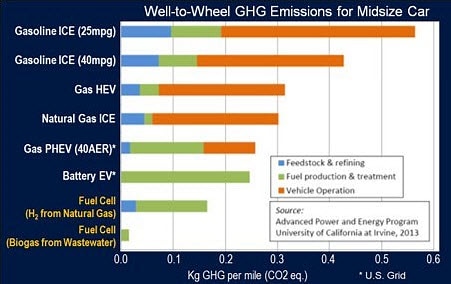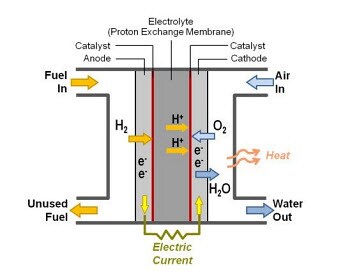
Hydrogen fuel-cell cars have become a popular topic as of lately due to growing interest by many of today's biggest automotive brands. Companies such as Toyota, Mercedes, Honda, and of course, Hyundai have all dipped their hands into the fuel-cell pool and either have models currently on the market, or are in the process of creating them. The excitement surrounding the gas alternative has peaked as of recently due to improvements directly related to the fuel cell initiative and an increase in states demanding more zero-emission cars, trucks and SUVs. With many driving benefits and much to offer our environment, hydrogen fuel-cell cars could just be the future of automotive.

What makes fuel-cell cars so important in today's car industry is the fact that they don't produce any harmful carbon-based emissions. The cars are powered by a stack of cells that combine hydrogen and oxygen to create electricity. By using this fuel alternative, the only emission produced by the cars is water vapor, which does not affect the environment. In addition to this benefit, improved production methods, such as splitting water using light energy to extract hydrogen, have also changed people's minds about fuel-cell cars, who originally found the extraction of hydrogen using fossil fuels to produce just as much carbon-based emissions as gas engines.

Aside from the environmental benefits of hydrogen fuel cells, the models feature all the same benefits as electric cars on the market. They are quiet, have excellent acceleration and deliver outstanding driving ranges. The all-new Hyundai Tucson Fuel Cell alone delivers an EPA-estimated 265-mile driving range, which is greater than most EVs currently on sale. Hydrogen models also trump electric cars when it comes to space since they don't have to carry a hefty battery pack. They can be fueled in less than 10 minutes as well, while EVs can take up to three hours to regain a full charge.
As of now, California is the leading fuel-cell distributor due to the growing number of fuel-cell stations located within the state; however, the fuel-cell infrastructure will expand over time. The costs to create the cars, which can reach $100,000, are also expected to take a dive as brands develop partnerships and discover new ways to produce fuel-cell vehicles.